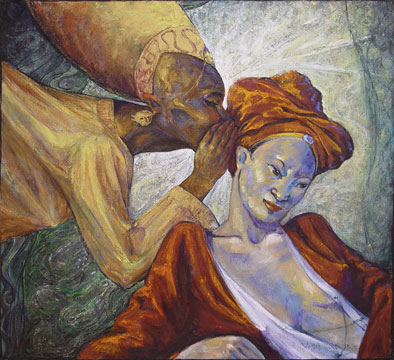CEO
How do dreams of our departed ones bring us some relief?
Dreams about the departed bring us relief in different ways, depending upon whether the dream is positive or negative. If the dream leaves the dreamer feeling distressed, common in the early stage of grief, the dream helps the dreamer:
• Accept the reality of the loss
• Work through the pain of the loss
• Let go of the attachment to the deceased
• Make the dreamer feel loved and protected
If the dream leaves the dreamer feeling comforted, it may help:
• Reassure the dreamer that the soul of the departed person is O.K.
• Inspire the dreamer to go on with life
• Guide the dreamer to reach personal goals
• Give the dreamer belief in an afterlife and hope for reunion
How do you explain your theory of universal dreams?
Because we are all human beings, no matter what our nationality, race, or religion, we share many traits and experiences. All of us grow and develop, experience hunger, thirst, fatigue, get chilled or overheated, became ill, and have other bodily needs. Most of us mate and bear children. We feel threatened, afraid, angry, passionate, loving, and many other emotions. We get stressed; we want to achieve; we yearn to be appreciated and loved. All of these elements appear, directly or in symbolic form, in our dreams.

These human needs may be represented by different symbols in different cultures. For instance, a person in India who feels threatened by some situation in his or her waking state may dream of being attacked by a vulture. A person in America who feels threatened by a waking situation may dream of being attacked by a shark. Both people feel equally threatened; both people dream of being attacked. The emotion and the dream attack are universal, but the symbol that represents the feeling is determined by culture and individual experience.
How can our dreams help us be more creative?
No matter what type of work we do or what interests we have, our dreams support us. They often give us new ideas that haven't occurred to us while we were awake. They may:

• Dramatize the idea directly, in the same way that Robert Louis Stevenson wrote his story “The Strange Case of Dr. Jekyll and Mr. Hyde” based on one of his nightmares
• Suggest the mood for a song, a story, a poem or a book
• Show us how to solve a problem that has been puzzling us or offer alternative solutions
• Give us an opportunity to practice skills during our sleep
To get the most benefit from our dreams, we need to face the frightening images in them to free our creative powers.
How can dreams help pregnant women?
Many women become needlessly anxious about their pregnancy dreams because they do not know that dreaming increases during pregnancy or that anxiety dreams are quite common during this time. Dreams about labor and childbirth, even if alarming, actually help the woman's body prepare for the forthcoming delivery by providing practice. Women can be reassured by learning about the typical pattern of dream changes during the three trimesters of pregnancy.
Some women have marvelous dreams of communication with their unborn child. These dreams help bond the woman to her child and give her more confidence in her role as mother.
What is the main difference between women and men's dreams?
In today's society, more women are aware of and interested in their dream lives than men are. Women's dreams tend to be more about family members and close friends. They mention clothes, jewelry and color more often than men do, as well as more positive emotions. Their dreams tend to be more romantic while men's dreams are more sensuous. Both men and women can benefit from understanding their dreams.
What is your opinion about sexual dreams?
They are a natural part of dreaming. Enjoy them when they appear!
Dream lovers often symbolize a wish to connect with some aspect of the lover, rather than the actual person, for example, power, fame, excitement, even an artistic or spiritual quality.
Comments
I've been recording my own dreams since I was fourteen years old, more than 50 years ago. From them, I've learned how to have a very fulfilling life.
These dream records, along with my studies and completing my training for a Ph.D. in clinical psychology, have been the foundation for the nine books I have written on understanding dreams and using them to improve the dreamer's life.
Every dreamer has the ability to learn from his or her dreams. Listen to your dreams; they're talking to you. Dreams are your richest resource!
Patricia Garfield, Ph.D.
|